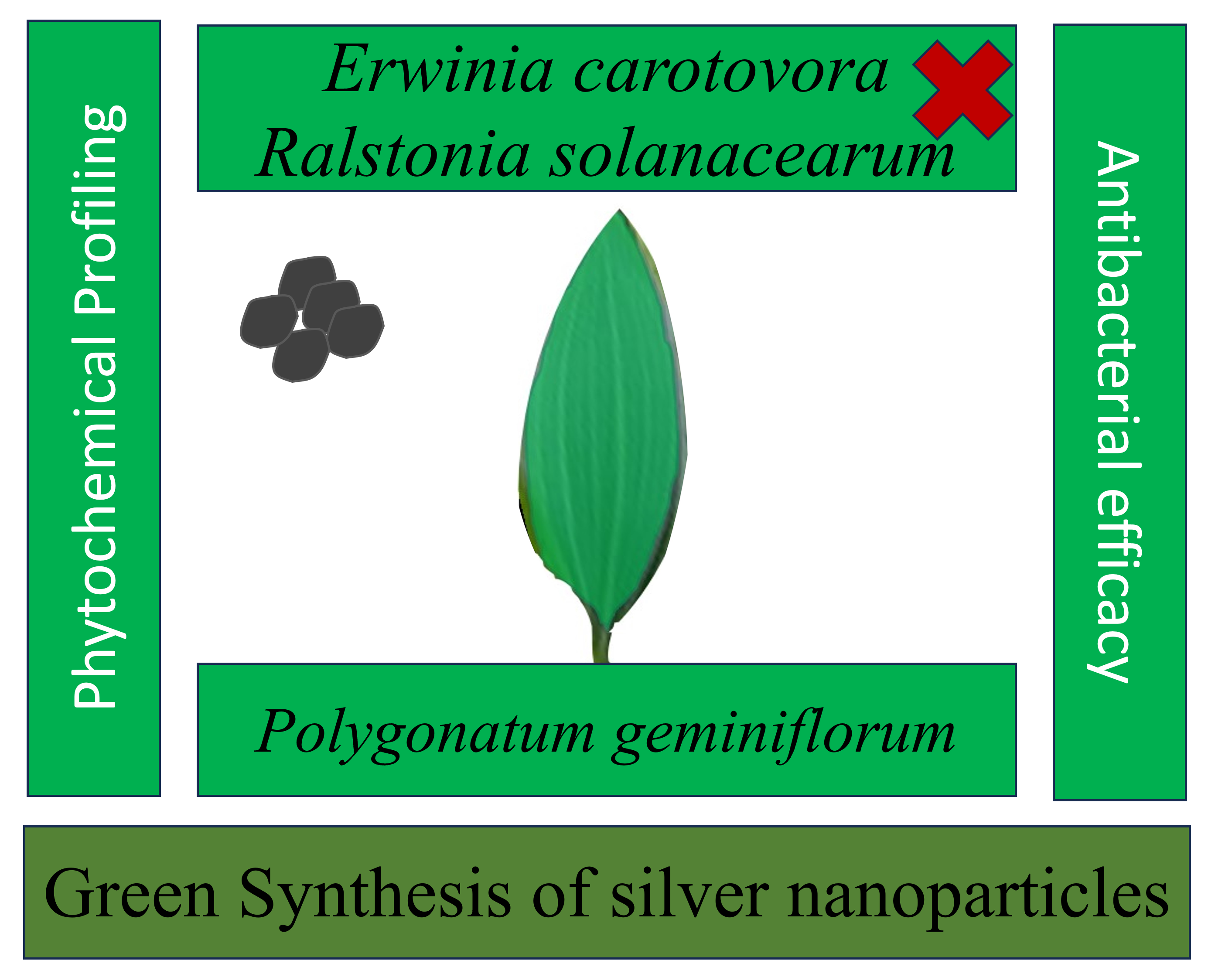- Cite article
- Download PDF
- Share article
- 20 Downloads
The biological synthesis of nanomaterials is drawing immense interest because of their non-hazardous nature and enormous antimicrobial application. In the present study, we explored Polygonatum geminiflorum Decne for phytochemical profiling and biosynthesis of silver nanoparticles to control soft rot/blackleg and bacterial wilt pathogens of potato through in vitro experiment. Phytochemical screening indicated the presence of important secondary chemicals including tannins, glycosides, flavonoids and terpenoids, while, gas chromatography-mass spectrophotometry (GC-MS) study of leaf extract showed the presence of 30 phytochemicals, the most prominent among which included ç-Sitosterol and n-Hexadecanoic acid. The GC–MS qualitative analysis also supported the presence of bioactive compounds responsible for metal reduction processes and synthesized nanoparticles stabilization. In vitro study showed that concentration of 100µg/mL of AgNPs and AgNPs-PE efficiently control both Erwinia carotovora and Ralstonia solanacearum. The outcomes have provided an improved protocol to use prepared AgNPs against the tested pathogens without health hazards.
